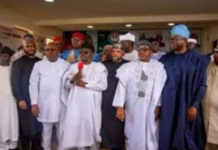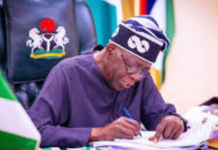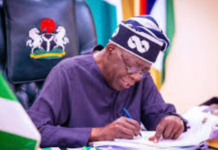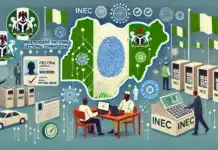In recent years, Nigerian politics has witnessed a gradual but significant shift, with more young people engaging actively in the political process. Youth participation in politics has become a focal point in discussions about Nigeria’s future, as it addresses the desire for political change, accountability, and inclusivity. With Nigeria’s population predominantly young, this demographic is increasingly recognized as a driving force for positive change in governance and development. This article explores the impact of youth participation in Nigerian politics, highlighting the challenges, successes, and potential of Nigeria’s youth in shaping a democratic future.
1. The Rise of Youth Engagement
Historically, Nigerian politics has been dominated by older generations, with younger people often sidelined due to various structural and cultural barriers. However, this dynamic is changing rapidly. Initiatives like the Not Too Young to Run bill, passed in 2018, reduced the age requirements for running for office. This landmark legislation gave young people more opportunities to contest for positions at both state and federal levels. Following this bill, the 2019 and 2023 elections saw increased numbers of young candidates and youth participation, underscoring a growing sense of political agency among Nigerian youth.
Social media platforms, especially Twitter, Facebook, and Instagram, have also become vital channels for youth activism. These platforms empower young people to discuss political issues, hold leaders accountable, and mobilize for causes. The EndSARS protests in 2020 demonstrated the potential of youth-led movements to challenge systemic issues, sparking a nationwide conversation on police brutality and governance reform.
2. Youth Participation and Electoral Impact
Youth engagement in the voting process has reshaped election outcomes in some regions. With over 60% of Nigeria’s population under 25, the youth vote is critical. However, low voter turnout among the youth remains an issue. Despite this, more young people are gradually exercising their voting rights, encouraged by campaigns promoting voter registration and education.
Increased political consciousness among young Nigerians has driven changes in electoral dynamics. Youth are not only voting but also scrutinizing candidates and questioning their platforms, qualifications, and commitment to youth-related issues. This shift in approach has encouraged some political candidates to adopt more youth-friendly policies, appealing to a younger electorate by addressing issues like unemployment, education reform, and security.
3. Challenges to Youth Political Participation
While progress is notable, Nigerian youth still face numerous challenges in the political arena. These include:
– Economic Barriers: Running for office in Nigeria requires substantial financial resources. Young candidates often lack the funds needed to mount competitive campaigns, limiting their ability to challenge established politicians.
– Political Culture: Many political parties are reluctant to support youth candidates, often prioritizing established party elites. The “godfather” culture, where influential figures dictate candidates, further stifles young voices.
– Security and Violence: Political violence remains a significant deterrent, particularly for young people who may feel vulnerable in the face of intimidation tactics used by certain political factions.
– Lack of Representation in Political Parties: Political party structures are often dominated by older members, with limited roles available for young people within party leadership and decision-making processes.
4. Success Stories and the Way Forward
Despite these challenges, there have been remarkable success stories. Youth-led initiatives and candidates have made headway in local governance and advocacy. For instance, youth representatives have successfully campaigned for educational reform and social investment programs aimed at reducing unemployment. Youth activists have also achieved national recognition, pushing for systemic reforms that have led to increased accountability in governance.
Moving forward, creating an environment where Nigerian youth can engage meaningfully in politics will require ongoing reforms. This includes greater access to political leadership roles within parties, targeted funding initiatives to support young candidates, and continued efforts to reduce political violence. Strengthening civic education can also ensure that young Nigerians are not only politically aware but equipped to engage in constructive, impactful activism.
5. Conclusion
The role of Nigerian youth in politics is evolving, with young people increasingly taking up the mantle of change. Youth participation brings a fresh perspective, prioritizes transparency, and challenges entrenched political norms. This participation not only empowers individuals but also strengthens democracy by broadening representation and promoting accountability.
As Nigeria continues to face political and socioeconomic challenges, empowering its youth to take an active role in politics is essential for sustainable progress. Through persistent activism, advocacy, and participation, Nigerian youth are making their voices heard and paving the way for a more inclusive and responsive political system.




















